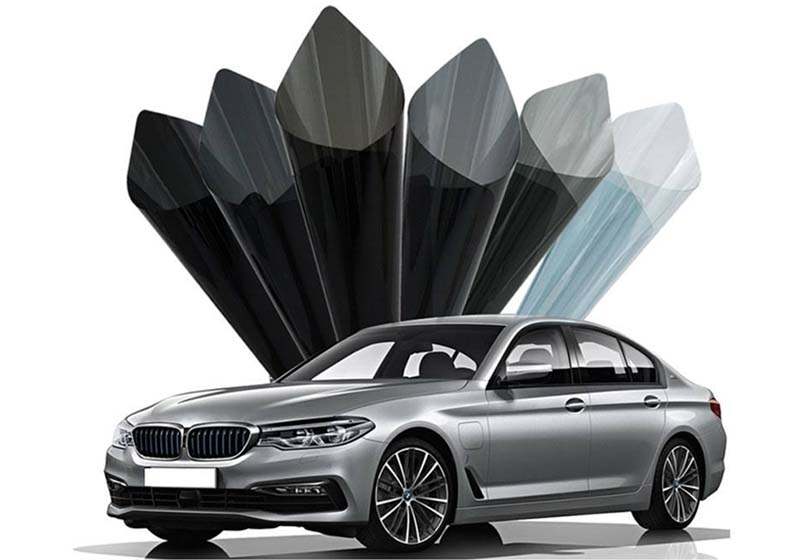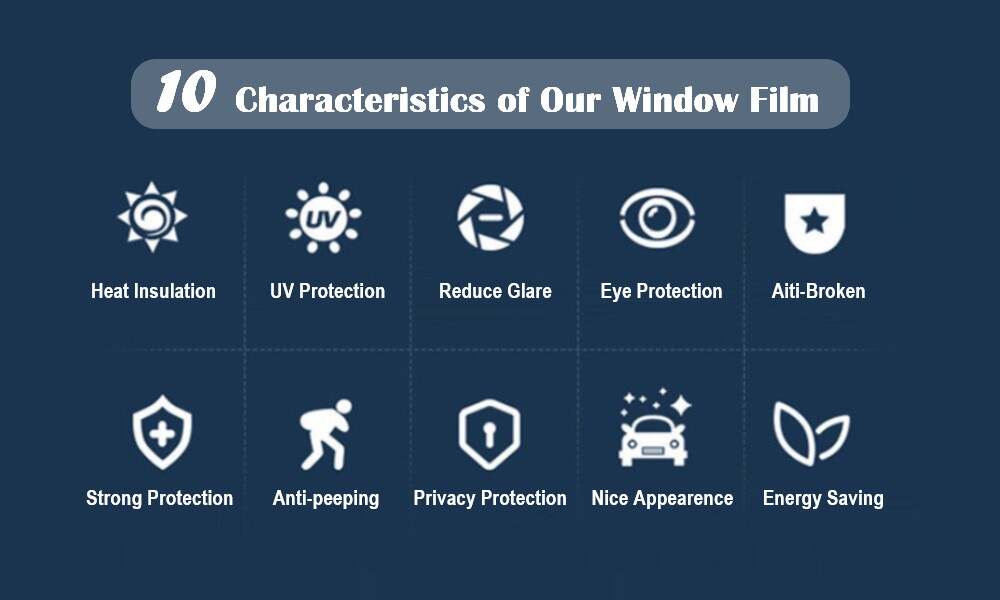

Choosing the ideal solar film can make a significant difference in controlling indoor temperatures,protecting furnishings from UV damage, and enhancing overal comfort.Whether you
are looking to shield your car' s interior from sunlight or seeking to reduce energy costs at home, selecting a solar flm with high UV rejection, reliable heat insulation, and robust sun
protection is essential.

Solar film, often referred to as window tint or window film, is a thin layer of specialized polyester laminate applied onto glass surfaces. Its primary functions include blocking or reducing harmful ultraviolet (UV) rays, minimizing glare, and reflecting heat to keep your indoor environment cooler. When selecting solar film for your car, home, or office, it is crucial to note how effectively it can achieve UV rejection, heat insulation, and sun protection.
Many people invest in solar film specifically for its UV rejection capability. Prolonged exposure to ultraviolet light can damage both the skin and items such as upholstery, furniture, and artwork. A high-quality solar film should block most of the UVA and UVB rays, significantly reducing fading and discoloration, as well as helping maintain a healthier environment for occupants.
One of the main advantages of installing solar film is its ability to reflect or absorb the sun’s heat. A good product ensures that your indoor space remains pleasantly cool during hot weather. Heat insulation not only contributes to comfort but also helps lower energy bills by reducing the load on air-conditioning units. When comparing solar films, consider factors like solar heat gain coefficient (SHGC) and total solar energy rejected (TSER) to evaluate their sun protection and heat insulation performance.
Aside from UV rejection and heat insulation, it is important to find a transparency level (known as Visible Light Transmission, or VLT) that balances your need for natural light with privacy concerns. Some solar films are darker to enhance privacy, while others are lightly tinted or nearly transparent for those who want to preserve their view. Think carefully about your specific environment: Do you value brightness and openness, or do you need more discretion?
When choosing your solar film, durability is a critical aspect. High-quality films typically come with scratch-resistant coatings and advanced adhesive properties to ensure a bubble-free installation and long lifespan. Professional installation is recommended for best results, although many films are designed for straightforward DIY application. Ensure that your chosen product clearly outlines proper cleaning and maintenance methods to extend longevity.
While price is a determining factor for many buyers, it should not overshadow performance. Striking a balance between cost and benefits like UV rejection, heat insulation, and overall sun protection will offer you the best value. In addition, look for certifications and product recommendations to ensure you’re investing in something that will truly stand the test of time.
Selecting the perfect solar film requires an understanding of several crucial factors, including UV rejection, heat insulation levels, visible light transmission, and installation quality. By focusing on these key elements, you can make an informed decision that will provide long-lasting comfort and protection to your space.
To learn more about advanced solutions for UV rejection, heat insulation, and sun protection, be sure to explore reliable resources and consult industry professionals for tailored advice. With careful research, you can enjoy the benefits of high-performance solar film and maintain a comfortable, energy-efficient environment for years to come.
Email cannot be empty
Password cannot be empty
Email format error
Email cannot be empty
Email already exists
6-20 characters(letters plus numbers only)
The password is inconsistent
Email format error
Email cannot be empty
Email does not exist
6-20 characters(letters plus numbers only)
The password is inconsistent